
views
- You may have trouble getting over your ex if you still see them often (either in person or via social media). Loneliness can also affect your ability to move on.
- You may struggle with idealizing your ex or only remembering the best of the old relationship while forgetting the issues that led to the breakup.
- If the relationship was toxic, you may be struggling with your sense of identity or self-confidence.
- After a breakup, moving on can be difficult if you haven’t processed your feelings or learned to let go of the past yet.
You still see your ex in person or on social media.
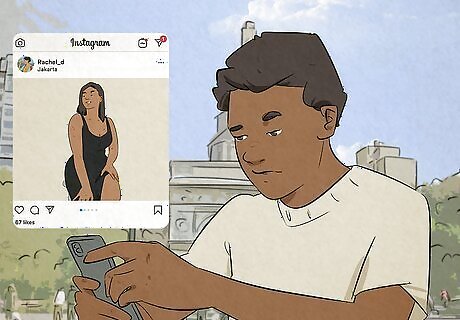
Having a constant reminder of your ex makes it tough to get over them. Seeing your ex after the breakup, whether you maintain direct contact with them or follow their social media posts, often heightens the heartache you feel. You’ll remember the breakup and what you lost to it every time you see them. Your hopes of reconciliation may also increase, making it even harder to move on. It’s possible to be friends with an ex if that’s really what you want, but directly after a breakup, try to follow the no-contact rule for at least a month. You need time to yourself to properly get over the breakup before you start seeing your ex again. It’s natural to miss them, but giving yourself space is an incredibly effective gift that will finally allow you to get over them. Block, unfollow, or mute your ex on social media so you won’t be constantly reminded of their existence and tempted to reach out. Reader Poll: We asked 253 wikiHow readers about how they use social media after a breakup, and 49% of them said that they block their ex and make their profile private. [Take Poll]
You feel lonely and don’t like being single.
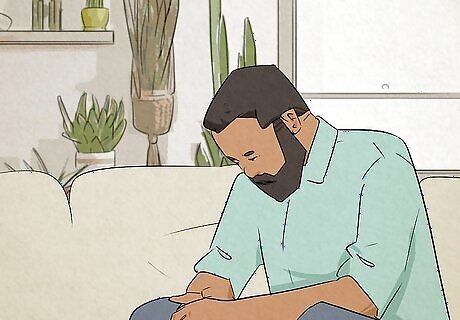
Fear of being alone makes you likely to fixate on old relationships. Feeling lonely is totally normal in the wake of a breakup; the memory of being with somebody is still fresh in your mind. However, loneliness or outright fear of being single can also make you tempted to dive back into an old relationship just to feel less alone—even if your ex ultimately wasn’t right for you. The key to conquering your loneliness is focusing on yourself in the aftermath of a breakup. Get back into your old hobbies if you let them slide, or pick up a few new interests you’ve always wanted to try! Strengthen your relationships with your close family and trusted friends. Humans are fundamentally social; we need relationships for our own well-being, but romance isn’t the only way to get that.
Your ex is familiar territory.

Sticking with your ex may feel easier than meeting someone new. After dating your ex for a while, you form a bond with them that feels safe and familiar—which makes letting go and forming an entirely new connection feel like quite the chore. You might be struggling to get over your ex because they’re familiar, and striking out into the unknown feels risky or daunting. Remember that there’s a difference between “familiar” and “comfortable.” Just because your ex feels familiar, doesn’t mean they’re the only person who can make you feel comfortable and accepted for exactly who you are. Don’t let familiarity stop you from moving past a relationship that wasn’t right for you. It’ll take time, but you are more than capable of finding someone truly worthy of you!
You’re only holding onto the good memories.

It’s easy to overlook your ex’s faults if you focus on good memories. Remember the old phrase, “Absence makes the heart grow fonder?” Well, it’s true: being apart from your ex makes it easier for your mind to recall the best aspects of the relationship, ignoring all the factors that led to the breakup. Ultimately, focusing on only good memories makes it harder to move on. If you find yourself focusing on the silver lining of your past relationship, remind yourself that you broke up for a reason. Recall the negative aspects of the relationship as well as the positive. Even if you get back together one day, ignoring the bad parts of your old relationship won’t help. You’ll need to understand where you two struggled in order to work through those issues together in the future!
You’re idealizing your ex.
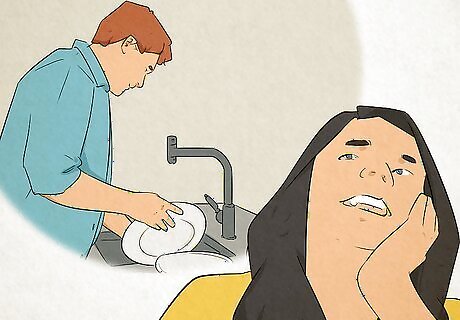
Finding new love is tougher if you’re convinced your ex was the best. In some relationships, you may end up idealizing your partner—meaning you believe they’re the perfect person for you, and nobody will ever measure up. After a breakup, it’s hard to let an ex go if you believe they’re the best you’ll ever do. You may even end up blaming yourself and thinking you weren’t good enough, even though it’s untrue. The truth is, it’s a big world out there! Even the best relationships may not work out for any number of reasons, but it should never stop you from finding new love and growing as a person. Idealizing your ex is a self-defeating attitude; telling yourself that they’re the only one for you closes off your mind to the idea of a better romance someday. Stay open to the infinite possibilities in front of you!
You’re forcing yourself to keep suffering.

It takes longer to heal if you secretly believe you deserve to suffer. If you have any unresolved issues caused by other exes, you might blame yourself for the breakup and punish yourself with continuous pain. On the other hand, you might be afraid of losing the relationship entirely if you let go of the pain you feel. Either way, unnecessary suffering only makes breakups harder. It’s important to treat yourself with compassion after going through a breakup. Understand that whatever happened, you don’t deserve to be your own worst enemy. Spend more time on self-care in the wake of the breakup. Suffering won’t bring the relationship back or help you in any way, so why do it?
The relationship weakened your self-confidence.

If your relationship was toxic, it can deeply affect your self-esteem. If a partner is emotionally abusive, putting you down and shaming you, it can make you crave their validation all the more. After a breakup, their bad behavior may have left your self-confidence in shreds, yet you don’t have them around to give you validation, making it hard to get over them. Remind yourself that you’re the strong one for getting out of that relationship. Just being here, free of your toxic ex, is a huge accomplishment! Become your own internal source of validation. Take time after the breakup to rebuild your self-confidence and truly love yourself in order to move on.
You put too much energy into the relationship.
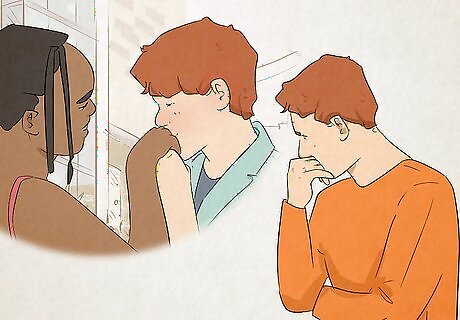
Healing may take longer after a toxic, energy-draining relationship. Another common trait of toxic relationships is that they’re utterly exhausting. The more effort you put into keeping the relationship going, the more energy you lose. In the wake of a breakup, it can be hard to come to terms with the energy you invested in that relationship; you may feel like you wasted months or years of your life on it. Try to see things from a healthier perspective. Breakups are painful, but they’re also meant to be opportunities for growth. You now understand more about what you need from a relationship and what you don’t, and you can carry this knowledge into future relationships—which will be much healthier for you as a result!
You feel guilty for not “fixing” your ex.
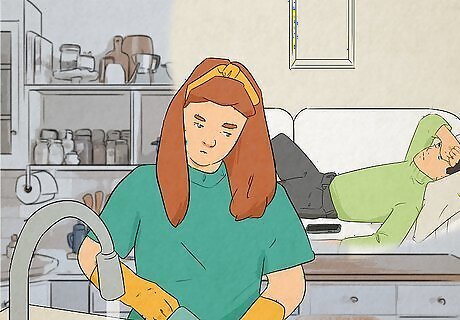
If your ex had issues you tried to fix, things might feel unfinished to you. In some cases, relationships can be toxic if an ex is dealing with unresolved trauma or mental health issues. As an empathic person, you may see a toxic ex as a victim rather than a person responsible for their bad behavior and assume it's your duty to "fix" them. As a result, you might start feeling guilty if things don’t work out. Try to let go of your guilt. Your ex’s troubles are not your fault, and their behavior is not your responsibility. Remember: at the end of the day, you can give a person love and support, but only they can make the decision to get help and work through their issues. If your ex didn’t do that, it has nothing to do with you.
You miss the highs and lows of the relationship.
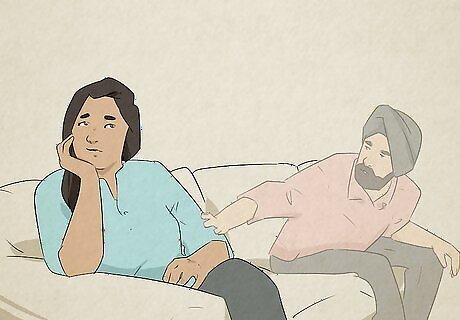
Unpredictability and drama can be almost addictive in toxic relationships. Did you know it’s possible to get hooked on the emotional rollercoaster of a toxic relationship? Such relationships go through periods of extreme highs, where everything feels perfect, followed by periods of severe lows, where your partner lashes out at you or pulls away. You may even end up missing all the excitement after a breakup. Remind yourself that just because a relationship is exciting doesn’t mean it’s healthy. You deserve a love that never feels like it might disappear at the drop of a hat, and your ex may not have been able to give you that.
You’re still trying to figure out what happened.

Without closure, it might feel harder to come to terms with the breakup. Do you often replay the breakup in your head, trying to understand the situation or find a solution? You also risk ignoring your emotions when you constantly ruminate on the breakup or the idea that you’ll never get closure. Fixating on what happened rather than how you feel about it can make moving on a challenge. If you’re positive that you need closure from your ex, you could reach out to them and politely ask to discuss the breakup and gain some clarity. Take care and only spend time with them if you can do so safely. Even if you do get closure, understand that you may not like the reasons your ex gives you. Often, the healthiest thing to do is to stop mulling over the relationship and let it go.
You haven’t been able to let go of the relationship.

Moving on is easier when you let go and learn from your mistakes. In the process of getting over an ex, the simple act of letting go is one of the most important things you can do. When you continue clinging to a relationship in your mind, truly moving on in a healthy and meaningful way is impossible—because deep down, you’ll always be focused on the past. Work on accepting what happened, including any mistakes along the way. The relationship, mistakes and all, is in the past; you can let it go and start over.
You’re still mourning what could have been.

It can be painful to let go of all the hopes you had for your relationship. When you’re in love, it’s only natural to start imagining what could happen in the future. You make plans, daydream, and may start building a future for yourself and your partner. After a breakup, it’s difficult to accept that those hopes are in the past. You may even get caught up in regrets and “What ifs,” asking what you could’ve done differently. Try to put aside and forget your regrets. Everyone sometimes wonders, “What if…?” but ultimately, it won’t do you any good. The best thing you can do is simply keep moving your life forward. Your relationship and hopes were real, but they’re in the past. Lingering on them is holding you back when you have a bright future to look forward to!
You haven’t fully grieved the relationship yet.
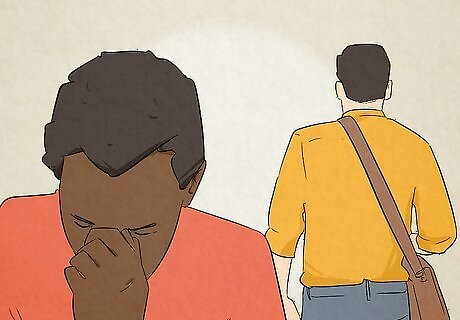
When you experience loss, it’s important to process your emotions. Immediately after the breakup, what was your first reaction? Did you embrace your feelings, as difficult as they were, or try to push them away? Suppressing feelings of loss, hurt, sadness, and anger post-breakup actually extends the grieving process even longer—and therefore extends the process of moving on. Don’t keep pushing your feelings down or pretending to be fine. To move on, it’s vital that you take some time for yourself and focus on processing and confronting your feelings. Journaling can be an extremely helpful tool in both controlling and processing your feelings after a breakup. Acknowledging the emotions that you feel surrounding the breakup will make it so much easier to let them go and eventually move on with your life!
You lost track of your identity in the relationship.

Getting over an ex is difficult when you don’t know who you are anymore. When you throw yourself into a relationship and focus entirely on your partner, you can neglect your individual identity. Post-breakup, this can leave you feeling a little lost; your sense of identity may be compromised by your ex, and it’s difficult to move on when you’re not sure who you are or what you need. Rebuild your sense of self after the breakup. Be open and interested in the way you react, the thoughts you have, and the feelings you experience. It can be exhilarating to relearn who you are and what your passions are! Build a strong support system of friends and family—and in future relationships, remember to maintain those other connections no matter what. They can help ensure that you don’t lose yourself again.
Your breakup reminded you of an older trauma.
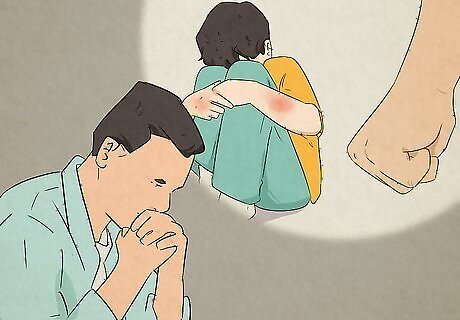
Breakups can trigger memories of losing other relationships in the past. If you dealt with issues in your childhood stemming from caretakers and parental figures, especially abandonment, mistrust, or abuse, a breakup might dredge those issues up. You might not be able to get over your ex because the memories from your past are making the breakup that much more painful. Addressing the source of your pain—that childhood trauma—is key to overcoming the breakup. This is because it’s likely not the breakup that’s upsetting you but the meaning behind it and the memories attached to it. If you can find a therapist, counseling is an invaluable tool that will help you overcome your past trauma and forge healthier relationships for yourself in the future.




















Comments
0 comment